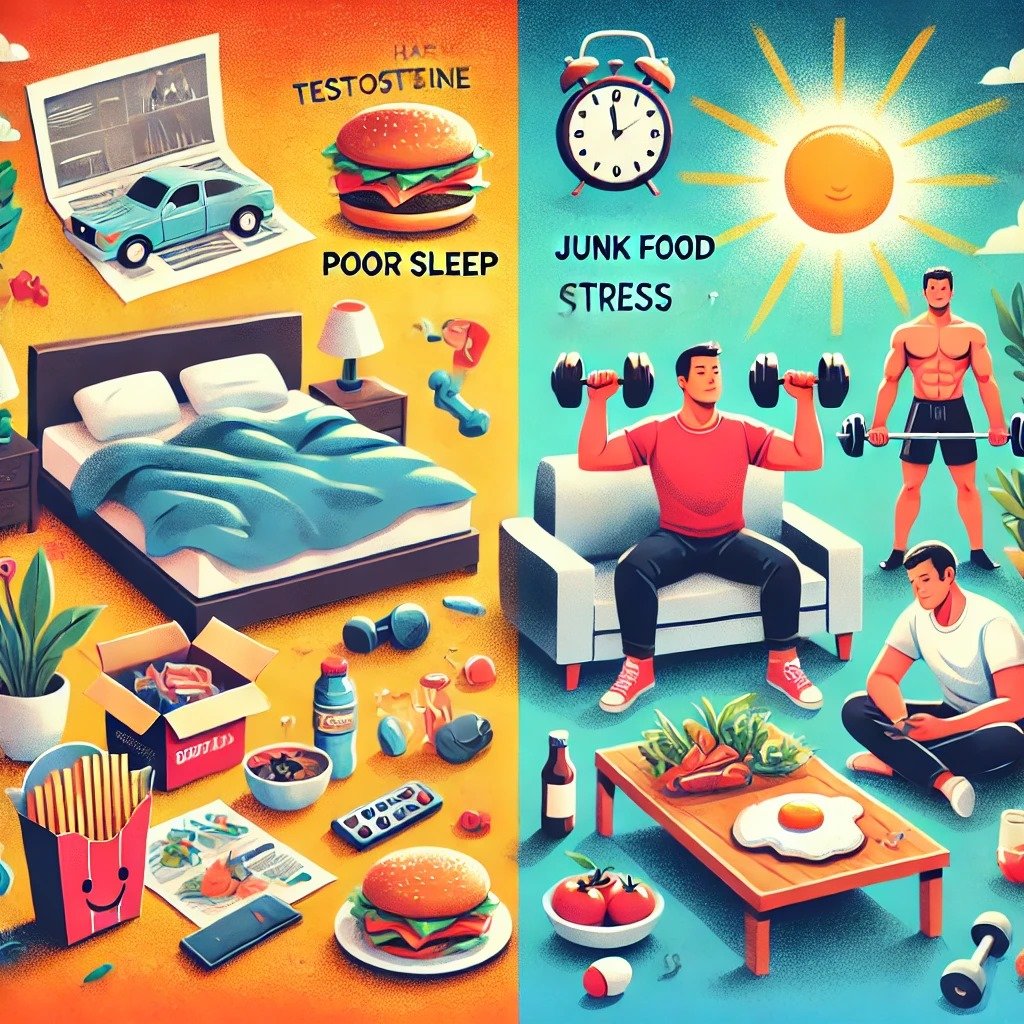Navigating Modern Challenges to Physical Health: Understanding and Overcoming Common Issues
In today’s fast-paced and increasingly sedentary world, maintaining optimal physical health has become a pressing concern for many individuals. Despite advances in healthcare and technology, modern lifestyles often predispose us to a myriad of health problems that can impact our well-being and quality of life. Understanding these common issues and adopting proactive strategies to address them is essential for promoting lifelong health and vitality.
Sedentary Lifestyles and Physical Inactivity: One of the most pervasive challenges to physical health in modern society is the prevalence of sedentary lifestyles. With the rise of desk jobs, screen time, and urbanization, many individuals spend the majority of their day sitting or engaging in minimal physical activity. This sedentary behavior is associated with a host of health problems, including obesity, cardiovascular disease, diabetes, and musculoskeletal issues. Combatting physical inactivity requires a conscious effort to incorporate regular exercise and movement into daily routines, whether through structured workouts, active commuting, or leisure activities.
Poor Nutrition and Dietary Habits: The modern diet, characterized by processed foods, sugary beverages, and convenience meals, often lacks the essential nutrients needed to support optimal health. Poor nutrition and dietary habits contribute to an array of health problems, including nutrient deficiencies, weight gain, digestive issues, and chronic diseases such as diabetes and heart disease. Overcoming these challenges involves adopting a balanced and varied diet rich in whole foods such as fruits, vegetables, lean proteins, whole grains, and healthy fats. Additionally, practicing mindful eating, portion control, and meal planning can help individuals make healthier food choices and establish sustainable eating habits.
Stress and Mental Health: The fast-paced and demanding nature of modern life has led to an epidemic of stress and mental health issues. Chronic stress not only takes a toll on our mental well-being but also has profound implications for our physical health, contributing to conditions such as hypertension, insomnia, immune dysfunction, and digestive disorders. Addressing stress requires a multifaceted approach that includes stress management techniques such as mindfulness, relaxation exercises, and cognitive-behavioral therapy. Additionally, prioritizing self-care, setting boundaries, and seeking social support can help individuals cope with the pressures of daily life and promote overall well-being.
Sleep Deprivation and Sleep Disorders: Inadequate sleep has emerged as a significant health concern in modern society, with many individuals failing to get the recommended amount of restorative sleep each night. Chronic sleep deprivation and sleep disorders such as insomnia, sleep apnea, and restless leg syndrome can have serious consequences for physical health, increasing the risk of obesity, diabetes, cardiovascular disease, and cognitive impairment. Improving sleep hygiene and practicing good sleep habits, such as maintaining a consistent sleep schedule, creating a relaxing bedtime routine, and optimizing the sleep environment, are essential steps in promoting restful sleep and supporting overall health.
Technology Overuse and Screen Addiction: The proliferation of digital devices and screens in modern life has led to a growing concern about technology overuse and screen addiction. Excessive screen time, particularly before bedtime, has been linked to disrupted sleep patterns, eye strain, musculoskeletal problems, and mental health issues such as anxiety and depression. To mitigate the negative effects of technology overuse, individuals can implement strategies such as setting screen time limits, taking regular breaks, and practicing digital detoxes. Additionally, fostering offline hobbies and activities that promote physical movement, social connection, and creativity can help strike a healthier balance between technology use and overall well-being.
In conclusion, while modern life presents numerous challenges to physical health, it is possible to overcome these obstacles through education, awareness, and proactive lifestyle choices. By prioritizing regular physical activity, nutritious eating, stress management, restful sleep, and mindful technology use, individuals can cultivate habits that support lifelong health and vitality in today’s fast-paced world.
Setting Personal Growth Goals: How to Identify and Achieve Success in Every Aspect of Life
Why Setting Personal Growth Goals is Important Before diving into how to set and achieve your goals, it’s crucial to understand why they matter.…
Are You Sabotaging Your Testosterone? 7 Daily Habits That Harm Your Masculinity
Are You Sabotaging Your Testosterone? 7 Daily Habits That Harm Your Masculinity Testosterone is the cornerstone of male vitality, influencing everythi…
Empower Your Health: The Benefits of Kegel Exercises for Women
Empower Your Health: The Benefits of Kegel Exercises for Women As women age, their bodies undergo numerous changes that can affect overall health and …







